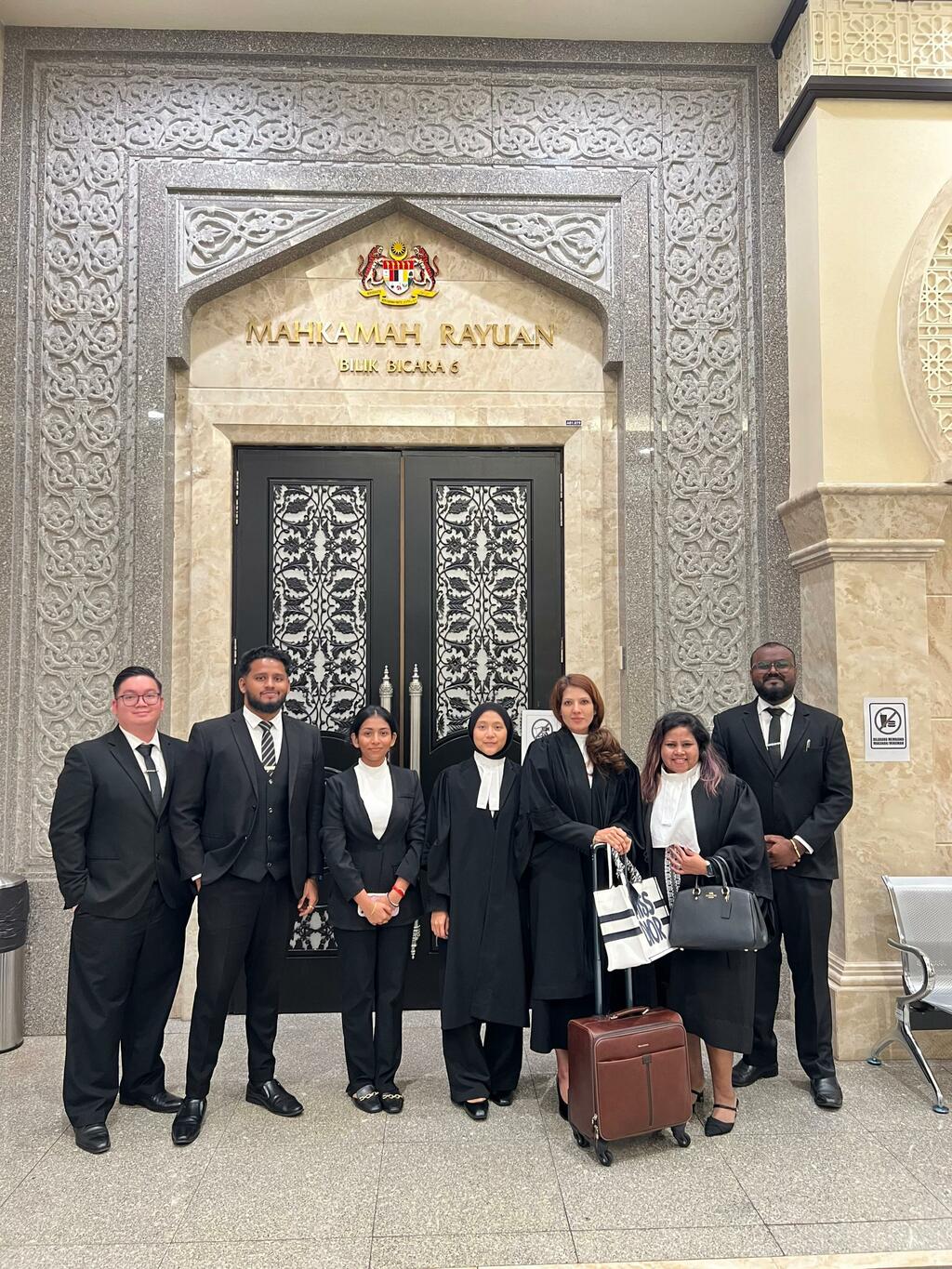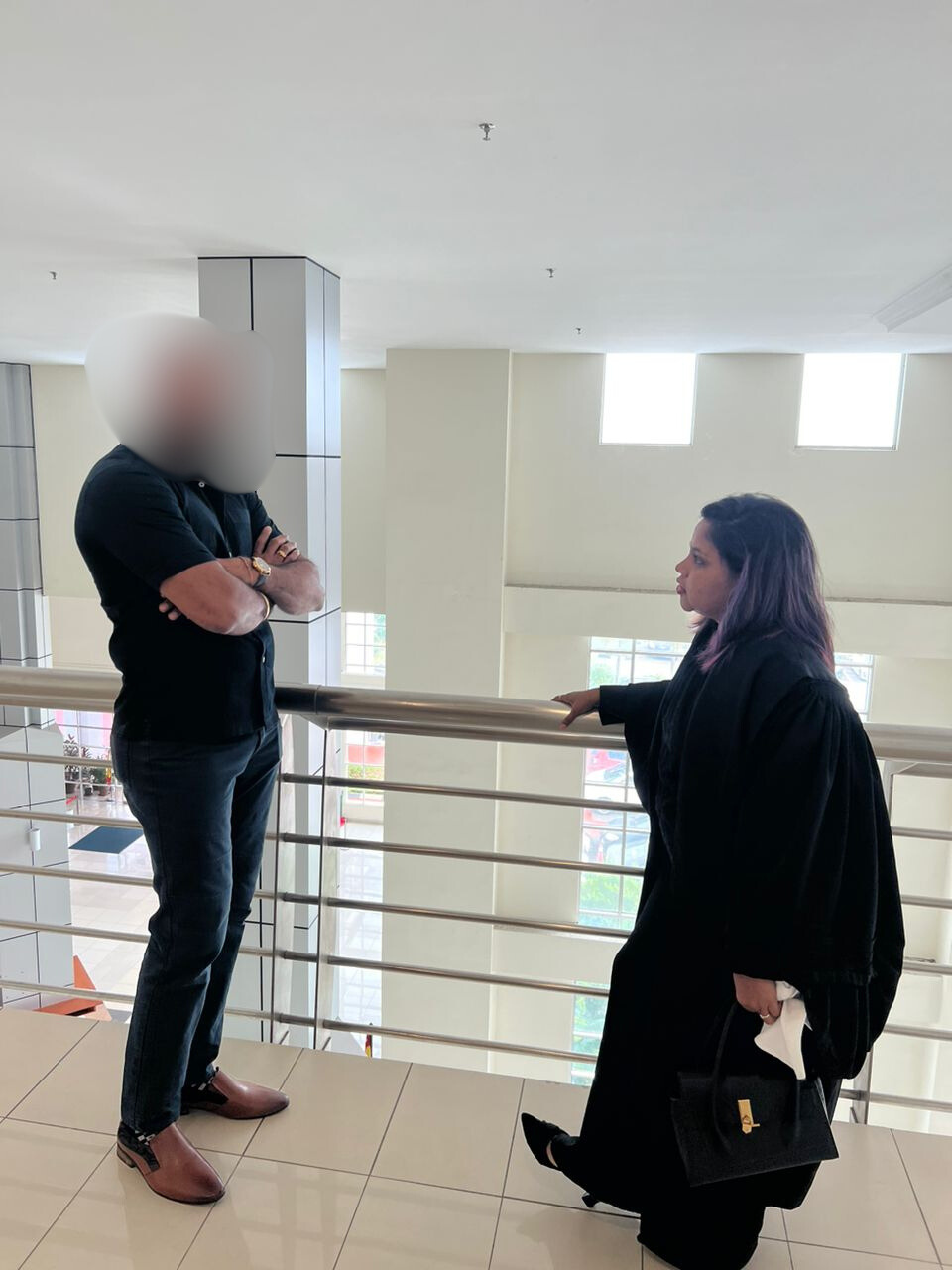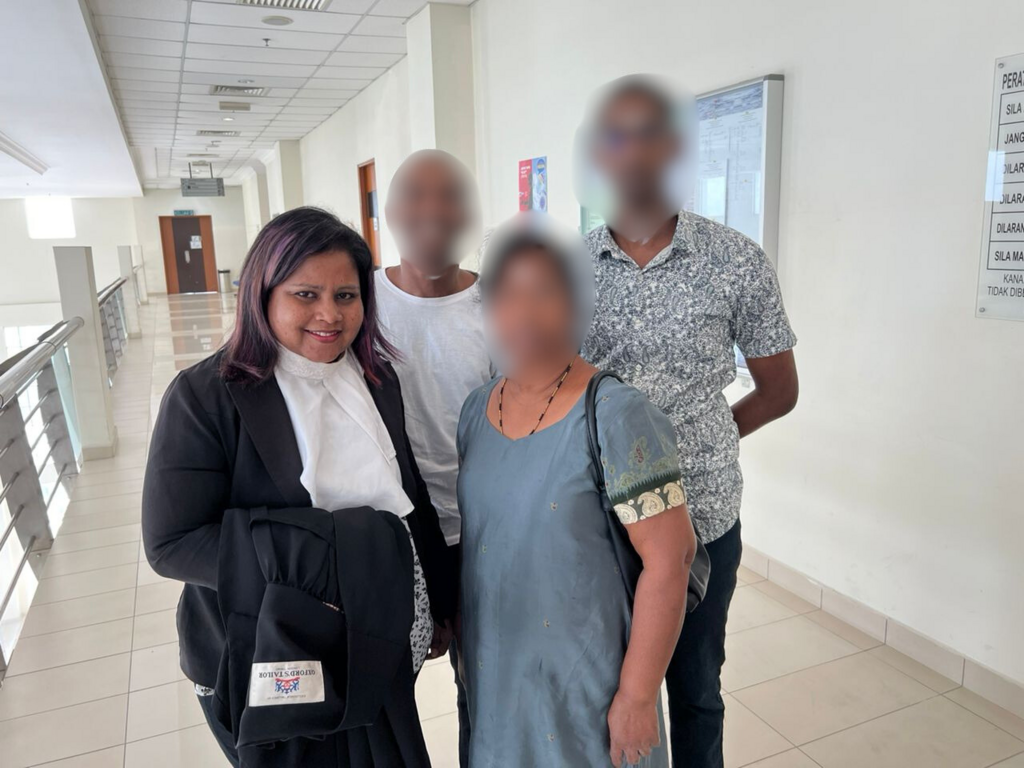
"Permission Granted, Justice Served" -Palace of Justice, Putrajaya.
We are pleased to report a significant milestone achieved by Messrs. Komathi Arunasalam, who were appointed as counsel by Messrs. Zaleha Hayat & Co. in a matter involving an application for an extension of time to file Notice of Appeal to the Court of Appeal wherein there were significant delay of 5 years in doing so by the accused.
Our client and 2 other accused were charged and tried in High Court for 2 charges under Section 39B of the Dangerous Drugs Act 1952 read together with Section 34 of the Penal Code in 2015, All 3 accused were then convicted under Section 39A(2) of the Dangerous Drugs Act 1952 and sentenced to 12 years imprisonment on the first charge and 23 years of imprisonment on the second charge in 2019.
The co-accused in the case successfully filed the Notice of Appeal to the Court of Appeal within the prescribed time and the decisions of High Court were subsequently set aside and both the accused were discharged and acquitted in 2022. However, our client whom has failed to file Notice of Appeal has continued to serve the given imprisonment despite the fact that the High Court’s decisions were overturned in appeal.
The core issue in todays’ hearing was that our client had not filed a Notice of Appeal within the statutory period of 14 days as stipulated under Section 51 of the Courts of Judicature Act 1964. Nevertheless, the legal framework under Section 56 of the same Act provides the Court with discretionary authority to allow an extension of time if it serves the interest of justice.
THE QUESTION TO BE DECIDED BY THE PANEL OF JUDGES ARE WHETHER THE MOTION FOR EXTENSION OF TIME TO FILE THE NOTICE OF APPEAL SHOULD BE ALLOWED ALTHOUGH THERE WERE INORDINATE DELAY OF 5 YEARS AND WHETHER THE DECISION OF THE OTHER APPEAL WHICH HAS QUASHED AND OVERTURNED THE DECISION OF HIGH COURT SHOULD BE CONSIDERED BY THE JUDGES IN THIS MOTION.
Our client was under the genuine and mistaken belief that he was included in the co-accused’s appeal, particularly due to the cross-appeal filed by the prosecution. This led to a state of confusion and misinformation regarding the status of his own appeal. He was then notified by the prison authorities in 2022 that the co-accused has been acquitted and released from prison. It was only at this point that he became aware of what has happened. He then appointed a lawyer to initiate an appeal in October 2022 whereby the said lawyer has advised him that an extension of time application has to be filed. The said lawyer then revisited the client only in July 2023 and thereafter an affidavit was affirmed by the client in August 2023, however, the Notice of Motion was filed but the said lawyer only filed the application in April 2024 which further added to the delayed in filing the Notice.
The pivotal legal question before the Honorable Court was whether strict adherence to Section 51 of the Courts of Judicature Act 1964 should preclude our client from filing a late appeal, or whether the Court should exercise its discretionary power under Section 56 of the Act in the interest of justice. Our submission emphasized the principles enshrined in Article 8 of the Federal Constitution, which guarantees equal protection of the law to all individuals. We argued that the extension should be granted to ensure our client is afforded the same legal rights and remedies as the other accused, consistent with the constitutional mandate of equality before the law. Following comprehensive and robust submissions by Ms. Komathi Arunasalam and Ms. Zaleha Hayat and notwithstanding strong opposition from the prosecution, the Court of Appeal unanimously allowed the application for an extension of time to file the Notice of Appeal.

"Faced the Appeal. Protected the Client. Prevailed in Principle."- High Court Klang.
In a significant legal victory, Komathi Arunasalam Advocates & Solicitors successfully defended an accused person who was acquitted after the defence stage, despite the prosecution’s appeal to the High Court. Initially, at the Magistrate’s Court, a prima facie case was established, requiring the accused to enter his defence. However, after a full trial, the court found the defence’s case credible and sufficient to raise reasonable doubt, resulting in an acquittal.
Dissatisfied with the decision, the prosecution appealed the acquittal to the High Court. However, after carefully reviewing the evidence and legal arguments, the High Court upheld the acquittal, affirming that the prosecution failed to prove its case beyond a reasonable doubt.
The accused was charged under Sections 323, 326A, and 506 of the Penal Code, all of which deal with offences related to causing harm and criminal intimidation.
Section 323 criminalizes the act of voluntarily causing hurt to another person. This provision is typically applied in cases where physical harm is inflicted but does not amount to grievous hurt. The punishment for this offence includes imprisonment for up to one (1) year, a fine of up to RM2,000, or both.
Section 326A specifically addresses situations where hurt is caused to a spouse, former spouse, or a person in a close domestic relationship. This section imposes a significantly harsher penalty, mandating a sentence twice the amount prescribed under Section 323 or Section 324, depending on the severity of the harm inflicted.
Section 506 pertains to the offence of criminal intimidation, which involves threats that cause alarm to the victim. The severity of the punishment varies based on the nature of the threat. If the threat involves causing death or grievous hurt, the penalty increases to a maximum imprisonment term of seven (7) years, a fine, or both.
At the Magistrate’s Court, after a prima facie case was established, the defence was called. However, our firm mounted a strong and strategic defence, focusing on: challenging the credibility of the prosecution’s witnesses, highlighting inconsistencies in the evidence and proving that the burden of proof was not met beyond a reasonable doubt. Ultimately, the Magistrate’s Court acquitted the accused, ruling that the prosecution failed to prove guilt beyond a reasonable doubt.
On appeal to the High Court, the prosecution sought to overturn the acquittal, but after reviewing the trial records, witness testimonies, and legal arguments, the High Court affirmed the acquittal, reinforcing the principle that an accused person must not be convicted unless guilt is proven beyond a reasonable doubt.
This case highlights the fundamental principle that justice must prevail, and an accused must not be convicted unless the prosecution meets the required standard of proof. Our firm remains steadfast in its commitment to defending the rights of the accused and ensuring that fair trial procedures are upheld at every stage of the legal process.

"Against the Accusation. For the Truth. Acquitted."- High Court Klang.
In a high-stakes trial involving three accused persons, our firm successfully defended the third accused, securing a full acquittal after the prosecution failed to establish a prima facie case against him under Section 39B of the Dangerous Drugs Act 1952. This outcome underscores the importance of a fair trial and the necessity for the prosecution to meet the required burden of proof in serious criminal cases.
Section 39B of the Malaysian Dangerous Drugs Act 1952 criminalizes drug trafficking, one of the most serious offences under Malaysian law. The penalties for a conviction under this provision are severe, including: The mandatory death penalty, or Life imprisonment with no less than 15 strokes of whipping, subject to judicial discretion following legal amendments.
Given the gravity of this offence, the prosecution is required to prove beyond a reasonable doubt that the accused was in possession of, had knowledge of, and intended to traffic the illicit substances. In this trial, three individuals were charged under Section 39B. The court, after reviewing the evidence presented by the prosecution, ruled that no prima facie case had been established against the second and third accused, leading to their immediate acquittal without them having to enter their defence.
Our firm, representing the third accused, meticulously dissected the prosecution’s case, demonstrating that there was no credible evidence linking our client to the alleged offence. Our defence strategy focused on: Exposing inconsistencies in the prosecution’s case, Challenging the reliability of the evidence presented and Proving that the elements of possession, knowledge, and trafficking were not sufficiently established.
As a result, the third accused was acquitted, reaffirming the principle that an accused person cannot be convicted based on weak or inconclusive evidence. However, the first accused was ordered to enter a defence, as the court found that the prosecution had established a prima facie case against him. This case highlights our firm’s dedication to protecting the rights of our clients and ensuring that justice is served. The acquittal of the third accused serves as a reminder that in criminal trials, the burden of proof lies squarely with the prosecution, and without clear and convincing evidence, an accused must not be forced to stand trial unnecessarily.
At Komathi Arunasalam Advocates & Solicitors, we remain steadfast in its commitment to providing exceptional legal representation, especially in cases involving serious criminal charges with life-altering consequences.
Our case was reported by Vanakkam Malaysia.
https://www.facebook.com/vanakkammalaysiadotcom/videos/418890997844832